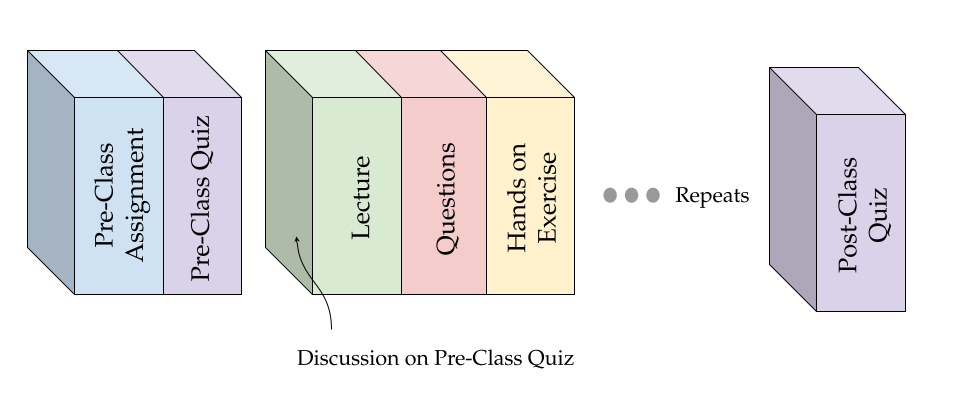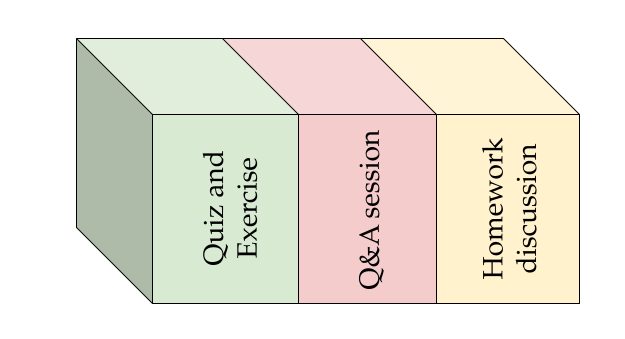Welcome to AI-4 B!
The objective of this module is to provide fundamental understanding of the concepts behind Reinforcement Learning and how to apply them to real world problems. This course follows the Univ.AI model of balancing between concept, theory, and implementation.
The course covers an introduction to the field of Reinforcement Learning covering the basic concepts, dynamic programming, Q-learning and Policy Graident Methods. At the end of this module, you will be able to efficiently work with reinforcement learning problems.
This page introduces you to the team, the basic instructions, the schedule and various elements of our class.
The Team
Dr. Pavlos Protopapas

- Scientific Director of the Institute for Applied Computational Science (IACS).
- Teaches Introduction to Data Science (CS109a), Advanced Topics in Data Science (CS109b) and Advanced Practical Data Science (AC215).
- He is a leader in astrostatistics and he is excited about the new telescopes coming online in the next few years.
You can read more about him here.
Dr. Ignacio Becker

- Astronomer currently pursuing a Ph.D. in Computer Science at Pontificia Universidad Católica in Chile.
- His main area of research is applied AI to astrophysical problems.
- Nowadays, he focuses on developing models to process the real-time data of the next generation of telescopes.
Teaching Assistants
Click on avatars of the TAs to know more about them.





The Coursework
We have very carefully designed the coursework to give you, the student, a wholesome learning experience. Each week shall include:
- 2 Sessions
- 2 Labs
- Office hours
Session - What to expect

Before the session begins, students are expected to complete a pre-class reading assignment and attempt a quiz based on the same.
A session will have the following pedagogy layout which will be repeated a few times:
- Approx. 10-15 minutes of live online instruction followed by a quiz
- Some sessions will have hands-on coding exercises or group activities
- Sessions will help students develop the intuition for the core concepts, provide the necessary mathematical background, and provide guidance on technical details.
- Sessions will be accompanied by relevant examples to clarify key concepts and techniques.
After the session, students are expected to complete a short post-class quiz based on the principal concepts covered in class and optional post-class reading will be provided.
Lab - What to expect

A lab is a TA driven 1.5 hour session that is divided into 3 major parts.
- Each lab begins by solving parts of a complete problem. This problem is designed to help you further elucidate concepts you learned in lecture.
- After discussing exercises, we will have a semi-formal Q/A session. This part of the lab is free-for-all, where you can ask any doubts that lingered over from lecture.

Course Pre-Requisites
Your are expected to have a working knowledge of python, along with these three libraries:
- Numpy
- Pandas
- Tensorflow.keras
All exercises in this course will be done in jupyter notebooks.
Note: Prior knowledge of high level machine learning libraries such as keras is necessary for this module
Before you begin the course, we have prepared for you a simple exercise to ensure your proficieny of the above libraries.
This will help you assess your preparedness for the course, and will also help you familiarize yourself with the platform.
Course Pre-Requisites
Your are expected to have a working knowledge of python, along with these three libraries:
- Numpy
- Pandas
- Tensorflow.keras
All exercises in this course will be done in jupyter notebooks.
Note: Prior knowledge of high level machine learning libraries such as keras is necessary for this module
Diversity & Inclusion
We actively seek and welcome people of diverse identities, from across the spectrum of disciplines and methods since Artificial Intelligence (AI) increasingly mediates our social, cultural, economic, and political interactions [1].
We believe in creating and maintaining an inclusive learning environment where all members feel safe, respected, and capable of producing their best work.
We commit to an experience for all participants that is free from – Harassment, bullying, and discrimination which includes but is not limited to:
- Offensive comments related to age, race, religion, creed, color, gender (including transgender/gender identity/gender expression), sexual orientation, medical condition, physical or intellectual disability, pregnancy, or medical conditions, national origin or ancestry.
- Intimidation, personal attacks, harassment, unnecessary disruption of talks during any of the learning activities.
Reference:
[1] K. Stathoulopoulos and J. C. Mateos-Garcia, “Gender Diversity in AI Research,” SSRN Electronic Journal, 2019 [Online]. Available: http://dx.doi.org/10.2139/ssrn.3428240.